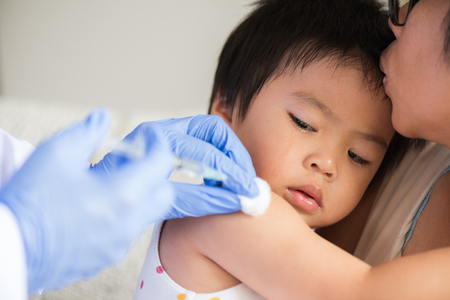A short, one-off exposure to general anesthesia in infancy unlikely to impact a child’s dev’t, says study

INQUIRER.net stock photo
New international research has found evidence to suggest that despite concerns, a short period of general anesthesia in infants does not cause neurodevelopmental or behavioral problems.
Led by researchers at the Murdoch Children’s Research Institute in Australia, the new study is the first randomized trial to investigate whether exposure to general anesthesia in infancy can negatively impact the brain by age five.
The researchers looked at 722 babies in Australia, Italy, the United States, the United Kingdom, Canada, the Netherlands and New Zealand, who were mostly male and of less than 60 weeks’ postmenstrual age, a time of when the brain is highly vulnerable.
The babies were all undergoing surgical repair of inguinal hernia, a common operation in early childhood, with the infants randomly assigned to receive general anesthesia (363 children) or local anesthesia (359 children), which does not cause brain injury in animal models.
The average duration of general anaesthesia was 54 minutes.
At age five, a time when intelligence testing is a strong predictor of a child’s future achievement, child psychologists assessed the children’s IQ score, memory, attention, executive function (skills that help with memory, impulse control, and planning) and behavior.
The findings, published in The Lancet, showed that there was no significant difference in IQ scores between the children exposed to general anesthesia, who had an average IQ score of 98.87, and those who received local anesthesia, and had an average IQ score of 99.08.
Moreover, there were no significant differences in a range of other tests of neurocognitive function.
The results also held true even after the researchers had taken into account age at birth, country and any missing data.
The researchers say that the study provides the strongest evidence yet that one brief exposure to anaesthesia is safe in young children.
However, they also add that given that 84 percent of the children were male, as well as other study limitations, more research is needed to confirm the findings in girls as well as children with longer and more than one exposure to anasthesia, and exposure to different types of anesthesia.
“Nearly half the general anaesthetics given to infants are used for less than one hour, therefore our findings should reassure health professionals and the millions of parents whose young children undergo surgical or diagnostic procedures with anaesthetic drugs worldwide every year,” says lead author Professor Andrew Davidson.
Whether anesthetic is safe for children has been the subject of many recent studies, which have provided conflicting results.
Previous animal studies have led to concern that exposure in young children might affect brain development after finding increased cell death in developing animals.
A large-scale Australian study published last year, which looked at 211,978 healthy children, found that those exposed to general anesthesia had lower literacy and numeracy school scores later in childhood than children not exposed. However, a U.S. study published in the same month found no evidence to suggest that anesthesia before age three can affect intelligence, although the researchers did note that other aspects of brain development may be affected by repeated exposure. JB
RELATED STORIES:
New study links emergency C-sections with a higher risk of postnatal depression